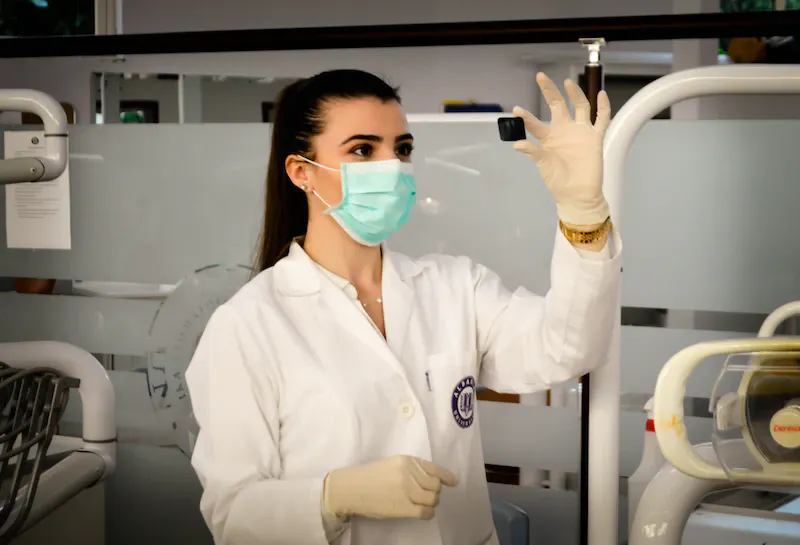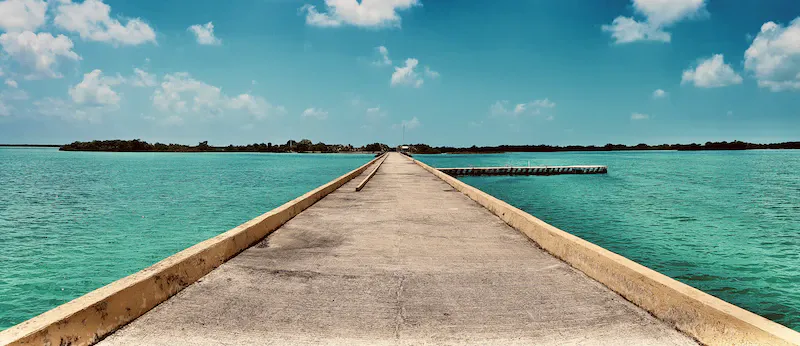Surviving Childhood Trauma: Stories of Healing and Hope

The Devastating Impact of Sexual Abuse on a Young Girl’s Life
Imagine being a young girl and having to testify in front of a sexual predator who abused you for years. That was my reality when I was just 14 years old. I was there to protect my step-siblings from this horrific abuser and tell my story of how he sexually abused me from the age of three until I was 11. It was an experience that scarred me for life.
Looking back, it’s unfortunate that we had to show up that day. If only a few things had happened differently in our past, we wouldn’t have had to go through that ordeal. I wasn’t the only one testifying that day, as the abuser’s sister had kept her secret for 35 years before finally telling someone about the abuse. Imagine if she had just told one person within those 35 years.
When the abuse first started when I was three years old, I told my mom about it. She tried to get support, but everyone told her she was crazy. So she stopped looking, and she never asked me about it again. Imagine if just one person had been curious and had believed me.
When I was 11 years old, this man and my mother got a divorce. If only I had known about organizations like the UK charity NSPCC, who teach safe touching with family and friends, and not just stranger danger. Over 93% of children are actually abused by someone they know.
To this day, the picture of myself at two years old and again at four years old makes me very sad. They say sexual abuse actually disconnects your soul. When I look into these two pictures, I can actually see it in my eyes.
It took me 25 years to stand up for myself again after that traumatic experience. But eventually, my coping mechanisms stopped working, and I had to seek help. It was then that I realized I had post-traumatic stress from my abuse and carried so much shame and guilt from not being able to say something sooner and protecting my step-siblings.
Childhood abuse can have a devastating impact on a person’s life, and it’s something that needs to be addressed. It’s not something that just goes away on its own. But with the right support and resources, it is possible to heal and recover from trauma.
The Importance of Believing and Supporting Abuse Survivors
When a survivor of abuse comes forward to share their story, it’s important to believe them and offer support. As someone who has experienced sexual abuse, I know firsthand how difficult it is to speak up about what happened. It takes an incredible amount of courage and strength to tell someone about the trauma that you’ve been through.
Unfortunately, not everyone believes survivors when they come forward. It’s common for victims to be blamed, questioned, or doubted, which can be incredibly damaging to their mental health and well-being. This is why it’s so important to believe and support survivors when they share their stories.
When I first told my mother about the abuse I was experiencing, she tried to get support, but everyone told her she was crazy. This disbelief made it even harder for me to speak up about what was happening. It wasn’t until I was much older that I was finally able to get the help that I needed.
Supporting survivors also means being there for them throughout the healing process. Recovering from abuse is a long and difficult journey, and it’s important for survivors to have a support system to lean on. This could mean offering emotional support, helping them find resources or counseling, or just being there to listen.
It’s important to remember that every survivor’s journey is unique. Some may choose to speak up publicly, while others may choose to keep their experiences private. Whatever the case may be, it’s important to respect their decision and offer support in any way that you can.
By believing and supporting survivors, we can create a world where they feel safe to speak up and seek help. It’s up to all of us to make sure that survivors know they are not alone, and that their experiences are valid and deserving of support.
The Need for Education on Safe Touching with Family and Friends
As someone who experienced sexual abuse from a family member, I understand the importance of educating children about safe touching. Unfortunately, many parents and caregivers are unaware of the signs of abuse and how to prevent it from happening.
Organizations like the UK charity NSPCC offer resources and training on how to teach children about safe touching with family and friends. It’s important to educate children on what is appropriate and inappropriate touching, as well as how to recognize when something is wrong.
When I was three years old, I told my mother about the abuse I was experiencing, but she was unable to get the support she needed. This is why education is so important. By teaching children about safe touching, we can enable them to speak up if they ever experience abuse.
It’s important to remember that sexual abuse can happen to anyone, regardless of their age, gender, or relationship to the abuser. Over 93% of children who experience sexual abuse are abused by someone they know. This is why it’s crucial to educate children on safe touching with family and friends, not just “stranger danger.”
Education on safe touching should not just be limited to children. It’s also important for adults to know how to recognize the signs of abuse and how to intervene if necessary. This could mean reporting abuse to the authorities or offering support to a victim of abuse.
By educating ourselves and our children on safe touching with family and friends, we can help prevent sexual abuse from happening and create a safer world for everyone. It’s up to all of us to take action and ensure that children are protected from abuse.
The Consequences of Not Addressing Childhood Traumas
Childhood trauma can have lasting impacts on a person’s mental and emotional well-being. As someone who experienced sexual abuse as a child, I know firsthand how untreated trauma can affect one’s life.
At first, I coped with the abuse by going into “life mode.” I got married, had children, and had a successful career. But eventually, my coping strategies stopped working, and I was unable to numb the pain anymore. I became unable to control every outcome in my life, which led to a very stressful life.
Not addressing my childhood traumas also affected my family. My marriage suffered, and my children were affected by my emotional state. It was a difficult time for all of us.
It wasn’t until I sought help from a marriage counselor that I realized I needed to address my childhood traumas. I checked myself into a 30-day residential intensive program, where I received about 300 hours of support. During this time, I learned that I had been suffering from post-traumatic stress from my abuse and that I carried a lot of shame and guilt for not being able to protect my step-siblings.
Many people are affected by childhood traumas, and it’s important to seek help and support to address these issues. Without treatment, the consequences of trauma can affect all aspects of one’s life, from personal relationships to professional success.
It’s also important to note that childhood trauma can manifest in different ways for different people. Some may develop addictions or mental health concerns, while others may have physical health concerns or struggle with relationships. It’s crucial to seek help if you are struggling with the effects of childhood trauma.
Addressing childhood traumas can be difficult, but it’s essential for healing and moving forward. It’s never too late to seek help and start the healing process. By taking action, we can break the cycle of trauma and create a brighter future for ourselves and those around us.
Overcoming Post-Traumatic Stress and Guilt from Childhood Abuse
As someone who experienced sexual abuse as a child, I know firsthand the difficulties of overcoming post-traumatic stress and guilt. These feelings can be all-consuming, but it’s possible to overcome them with time and support.
For me, forgiveness played a crucial role in my healing process. I forgave my abuser early on, not for him but for myself. I knew that holding onto hatred and anger would only hurt me in the long run. Forgiveness allowed me to let go of the pain and move forward with my life.
It’s also essential to address the shame and guilt that often come with being a victim of abuse. It’s common for victims to feel like they could have done something to prevent the abuse, but it’s important to remember that the blame lies solely with the abuser. Addressing these feelings with therapy or support groups can be beneficial in the healing process.
Seeking professional help is also crucial in overcoming post-traumatic stress and guilt. In my case, checking myself into a 30-day residential intensive program was a turning point in my healing journey. I received about 300 hours of support and learned coping mechanisms for dealing with triggers and difficult emotions.
It’s important to remember that everyone’s healing journey is unique, and there is no right or wrong way to heal. What works for one person may not work for another. It’s essential to find what works best for you and seek support when needed.
Overcoming post-traumatic stress and guilt from childhood abuse can be a long and difficult process, but it’s possible with time, support, and the right resources. By addressing these issues head-on, we can begin to heal and create a brighter future for ourselves.
The power of forgiveness in healing from trauma
Forgiveness can be a powerful tool in healing from trauma, and it is something that helped me in my journey. When I forgave my abuser, it wasn’t for him, but for myself. Carrying around hatred and resentment only weighed me down and prevented me from moving forward.
I understand that forgiveness can be a difficult concept for many people to grasp, and it’s not always necessary or even possible. However, forgiving my abuser allowed me to let go of the anger and pain that was holding me back. It allowed me to move forward with my life and begin to heal.
It’s important to note that forgiveness does not mean forgetting or excusing the abuse that occurred. It simply means choosing to let go of the negative emotions associated with it.
In my experience, forgiveness was just one part of my healing journey. It was not a magic solution that instantly fixed everything, but it was a step in the right direction. Therapy and support from loved ones were also crucial in my healing process.
I understand that forgiveness may not be for everyone, and that is okay. Every survivor’s journey is unique, and it’s important to find what works for you. But for me, forgiveness played a significant role in my healing, and it’s something that I believe in.
The importance of building a support group for healing
Building a support group is one of the most important steps in the healing process for those who have experienced trauma. It provides a safe space for individuals to share their experiences and emotions, and receive support from those who understand and empathize with their struggles.
For me, building a support group started unconsciously when I was just five years old. It was a coping mechanism that helped me get through the abuse I was experiencing. Today, I have 18 women who I call my “sisters of choice”. They know all of my scars and are there for me in both my joys and sorrows.
It’s crucial to have a support group because it’s difficult to heal alone. Trauma can make people feel isolated and misunderstood, and it can be challenging to find people who truly understand what they are going through.
Having a support group can also help individuals realize that they are not alone in their experiences. They can share their stories and find comfort in knowing that others have gone through similar situations. This sense of community can provide a much-needed sense of belonging and validation.
Furthermore, support groups offer a sense of accountability. Members can hold each other accountable for their actions, and provide encouragement to make positive changes in their lives.
In short, building a support group is a critical step in the healing process. It provides a safe space, a sense of community, and accountability to help individuals move forward and heal from their traumas.
The Need for More Resources and Support for Trauma Victims
As someone who has personally experienced trauma, I know firsthand the impact it can have on a person’s life. It’s not something that can simply be “gotten over” with time. Recovery is a long and difficult journey that requires patience, support, and access to resources. Unfortunately, many trauma victims don’t have the necessary resources or support systems to help them through the healing process.
One of the biggest challenges for trauma victims is accessing mental health resources. Therapy and other forms of mental health treatment can be expensive and not covered by insurance. Additionally, there may be a shortage of mental health professionals in certain areas, making it difficult to find a therapist who specializes in trauma. This lack of access to mental health resources can be particularly challenging for low-income individuals and those living in rural areas.
Another issue is the stigma surrounding trauma and mental health. Some people still believe that mental health problems are a sign of weakness or that therapy is only for “crazy” people. This can make it difficult for trauma victims to seek help and can lead to feelings of shame and isolation.
It’s important for us as a society to recognize the need for more resources and support for trauma victims. This includes increased funding for mental health resources and more education and awareness about the impact of trauma on individuals and communities. It also means creating safe spaces where trauma victims can share their experiences and receive support without judgment.
If you or someone you know is struggling with the aftermath of trauma, know that you are not alone. There are resources available to help you on your journey to healing. Don’t be afraid to reach out for help and support.
Conclusion
Childhood trauma, particularly sexual abuse, can have devastating and long-lasting effects on an individual’s life. Survivors may struggle with a range of mental health issues, such as post-traumatic stress disorder (PTSD), anxiety, depression, and substance abuse. It is crucial to provide support and resources to help survivors heal and overcome these challenges.
Believing and supporting survivors, educating children about safe touching with family and friends, addressing childhood traumas, forgiving oneself and others, building a support system, and having access to resources and support are all essential steps towards healing from childhood trauma.
As a society, we need to prioritize creating safe environments for children and providing more resources for survivors. It’s time to break the silence and stigma surrounding childhood trauma and sexual abuse, and work towards a future where all survivors can live healthy and fulfilling lives.


